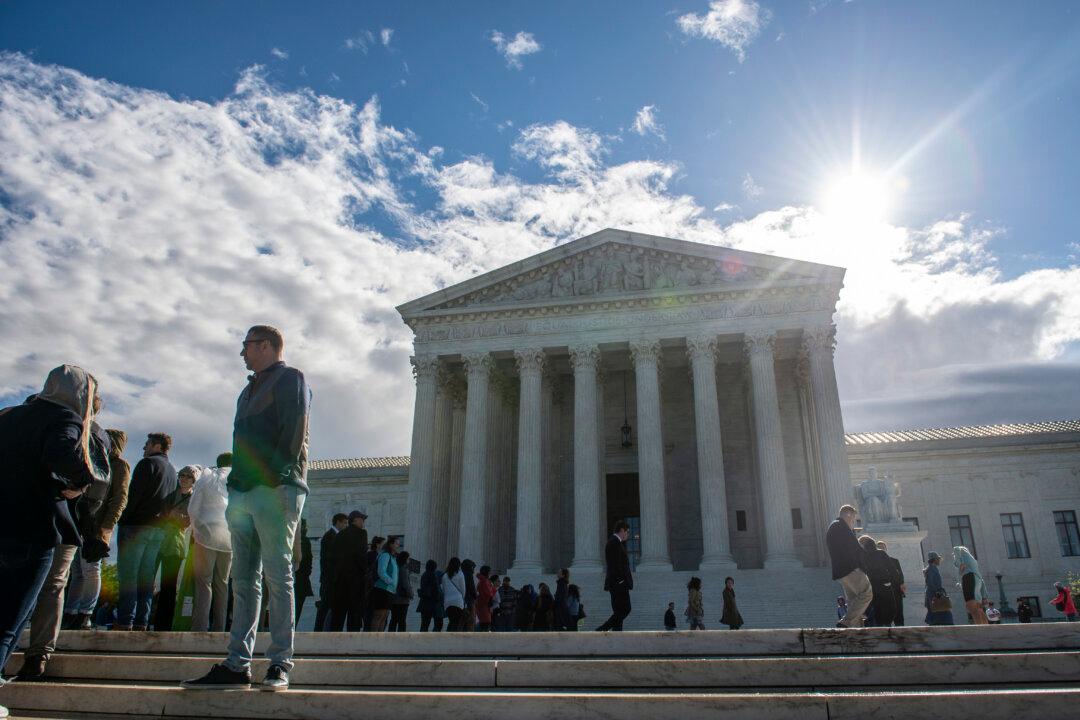WASHINGTON—The Supreme Court could make it easier for lawful permanent residents to stay in the United States after being convicted of felonies.
As of January 2014, the most recent date for which Department of Homeland Security figures are available, there were about 13.2 million lawful permanent residents in the United States.





